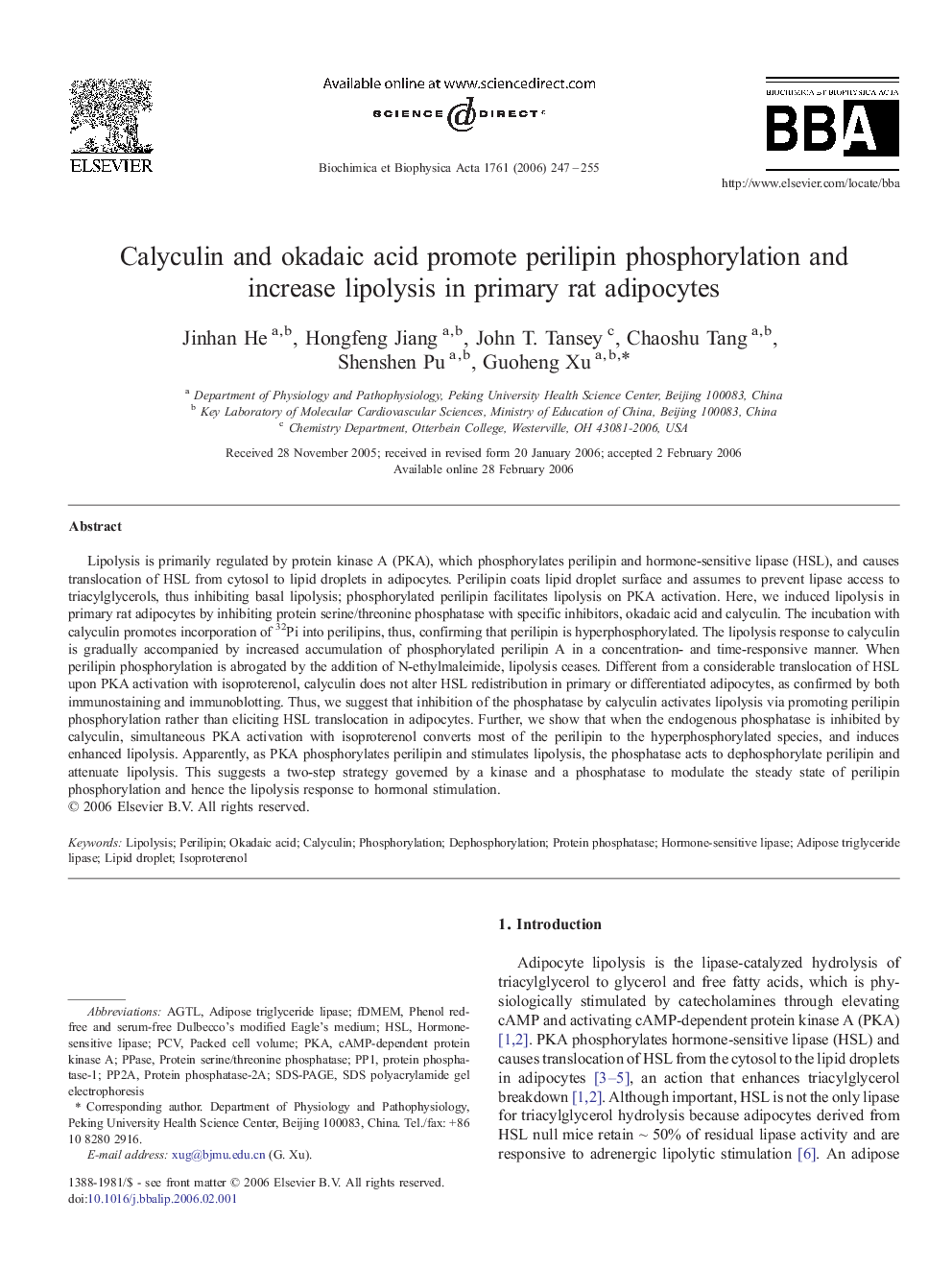| Article ID | Journal | Published Year | Pages | File Type |
|---|---|---|---|---|
| 1950260 | Biochimica et Biophysica Acta (BBA) - Molecular and Cell Biology of Lipids | 2006 | 9 Pages |
Lipolysis is primarily regulated by protein kinase A (PKA), which phosphorylates perilipin and hormone-sensitive lipase (HSL), and causes translocation of HSL from cytosol to lipid droplets in adipocytes. Perilipin coats lipid droplet surface and assumes to prevent lipase access to triacylglycerols, thus inhibiting basal lipolysis; phosphorylated perilipin facilitates lipolysis on PKA activation. Here, we induced lipolysis in primary rat adipocytes by inhibiting protein serine/threonine phosphatase with specific inhibitors, okadaic acid and calyculin. The incubation with calyculin promotes incorporation of 32Pi into perilipins, thus, confirming that perilipin is hyperphosphorylated. The lipolysis response to calyculin is gradually accompanied by increased accumulation of phosphorylated perilipin A in a concentration- and time-responsive manner. When perilipin phosphorylation is abrogated by the addition of N-ethylmaleimide, lipolysis ceases. Different from a considerable translocation of HSL upon PKA activation with isoproterenol, calyculin does not alter HSL redistribution in primary or differentiated adipocytes, as confirmed by both immunostaining and immunoblotting. Thus, we suggest that inhibition of the phosphatase by calyculin activates lipolysis via promoting perilipin phosphorylation rather than eliciting HSL translocation in adipocytes. Further, we show that when the endogenous phosphatase is inhibited by calyculin, simultaneous PKA activation with isoproterenol converts most of the perilipin to the hyperphosphorylated species, and induces enhanced lipolysis. Apparently, as PKA phosphorylates perilipin and stimulates lipolysis, the phosphatase acts to dephosphorylate perilipin and attenuate lipolysis. This suggests a two-step strategy governed by a kinase and a phosphatase to modulate the steady state of perilipin phosphorylation and hence the lipolysis response to hormonal stimulation.
